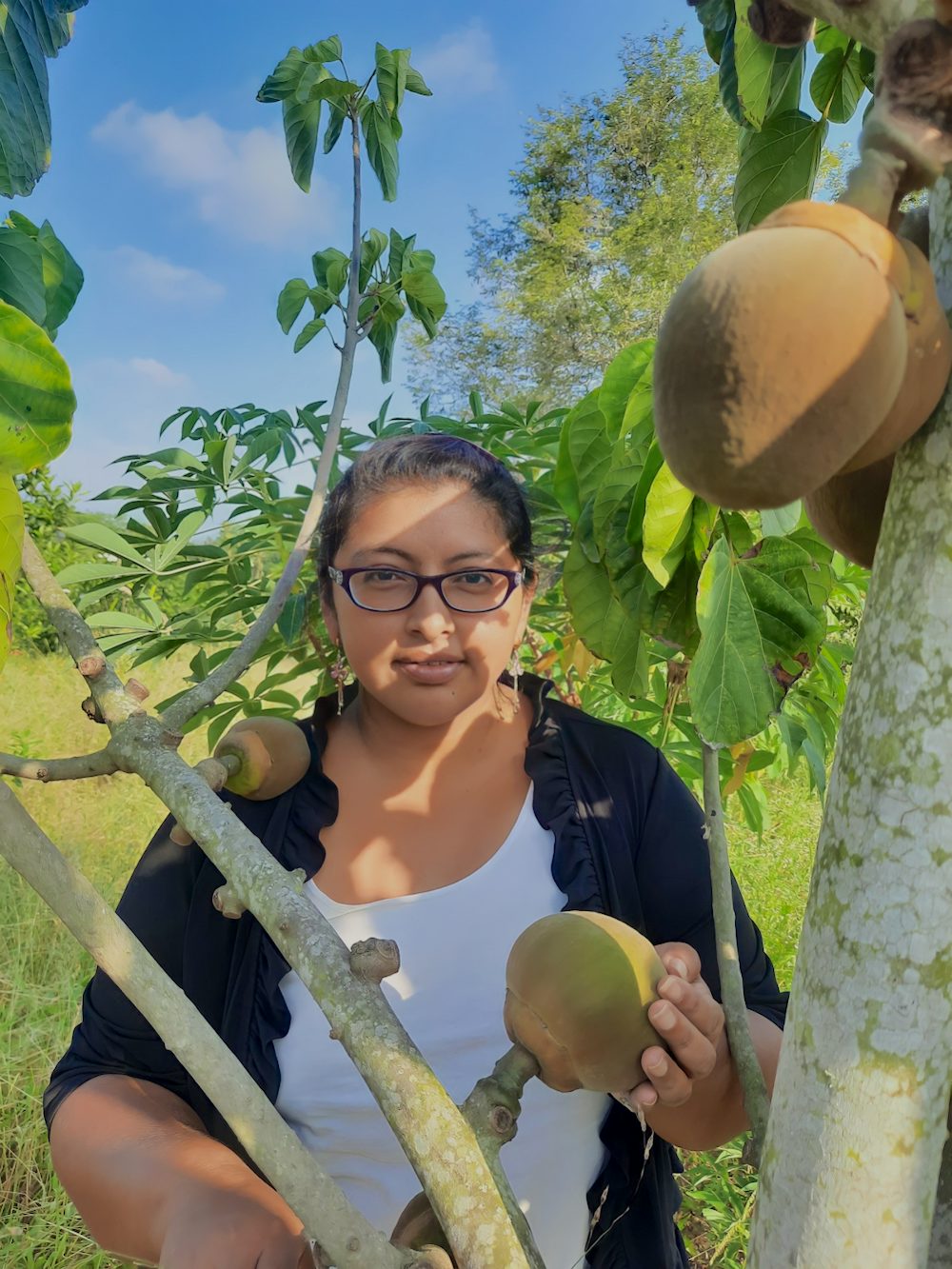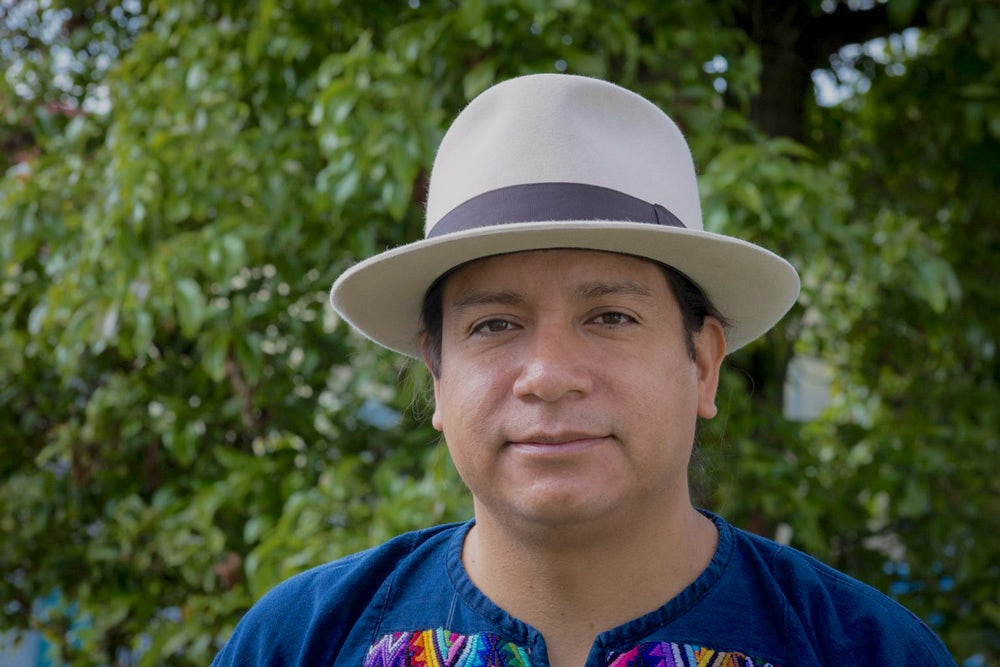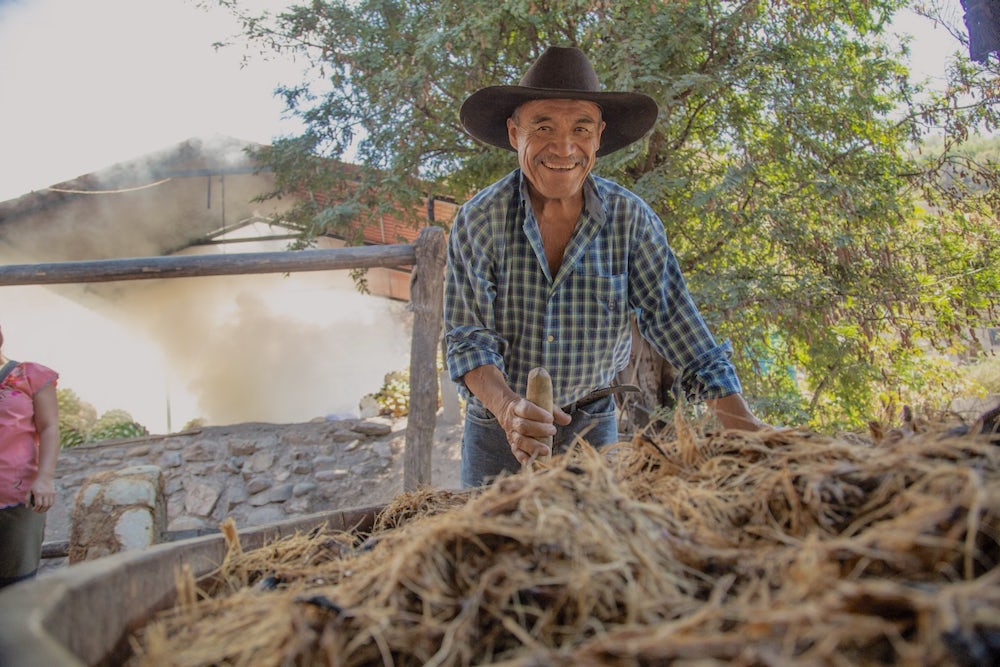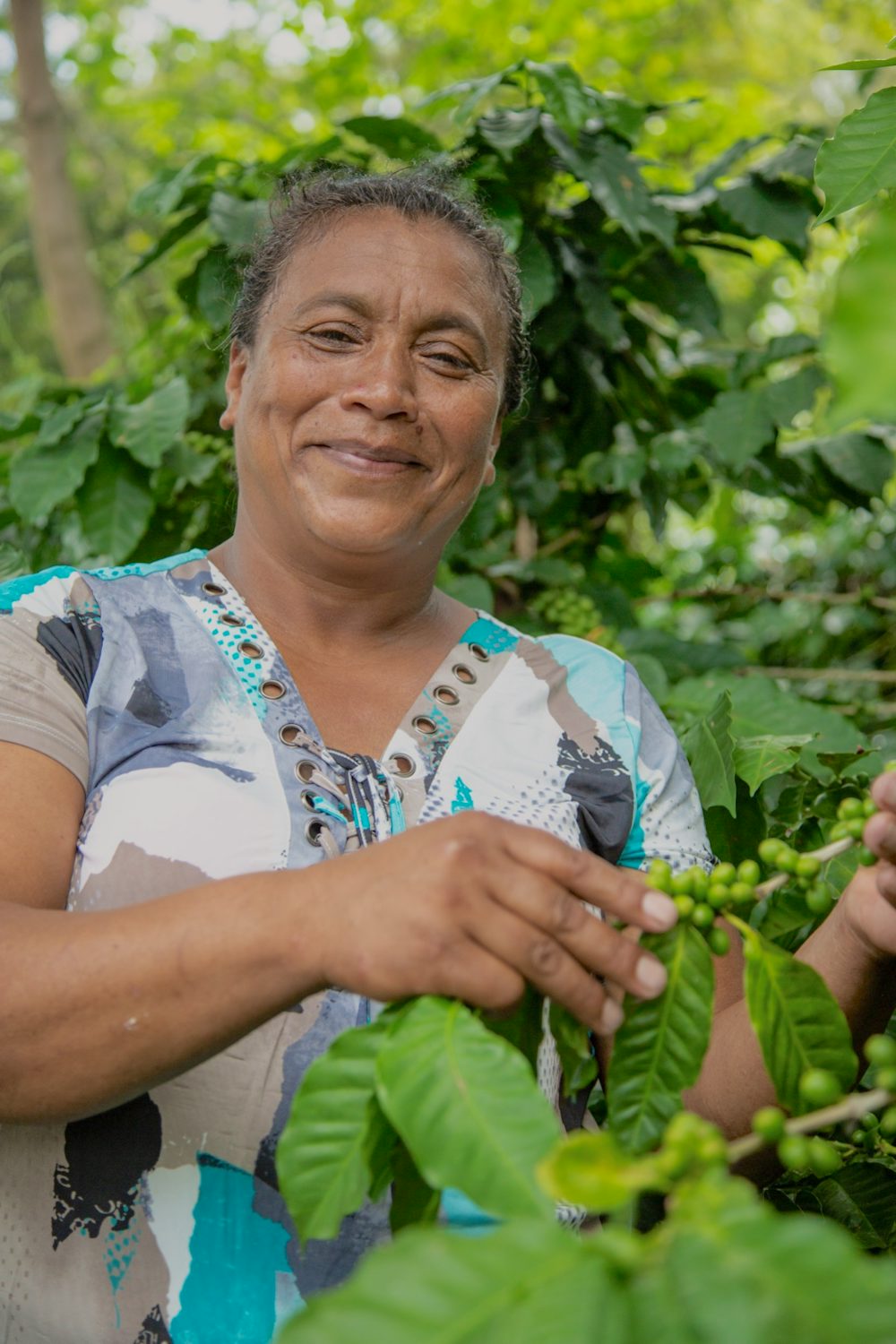It’s dark when Silvia Prudente begins her day. She takes to the field in the pre-dawn quiet, before the birds start to sing and the morning sun turns the skies above from black to orange.
Like her parents before her and their parents before them, Silvia works the land, raising pigs and chickens and tending to an orchard of fruit trees in western Ecuador’s Santa Elena province. She is a steward of animals and plants, fueled by knowledge passed down over generations. She grows food that sustains her community. She is a campesina.

“The life of a campesina is about the relationship we have with the Earth, as companions to the soil, to the water, to the seeds,” Silvia said. “As campesinos, we are a fundamental part of our country’s food production, and we relate to our identity with pride.”
Though campesina, or campesino, is often translated to “peasant” in English, the word’s meaning is richer and more significant: for farmers in Latin America, it’s a cultural identity rooted in a deep connection to community, food and the natural world.
Campesinos are farmers — often indigenous — who apply their ancestral agricultural knowledge to growing food on small plots of land for their family and community. It's a term imbued with a strong sense of belonging to the field.
Across our projects in Central and South America, Heifer International provides support for farmers who identify as campesinos, like Silvia, to continue this sacred work. And in the face of global challenges, campesinos' valuable link between family and food system became all the more clear.
“Sometimes we consider agriculture, or people who are engaged in agriculture, as something that does not necessarily have value,” Silvia said. “Then, when [we endured] the shutdowns during the pandemic, we realized that we always need the field.”
Campesinos’ intimate knowledge of the field and their work to shepherd crops from seedling to market is no small endeavor, says Luis Andrango, a campesino from the northern province of Imbabura.
“That process of production — preparing the land, the plowing, the fertilizing — is a labor-intensive task and often cannot be just an individual’s job,” he said. Family and community members frequently contribute through a minga, an Indigenous practice of communal work.

“But I think that the most attractive time for everyone is the time of harvest,” he said. “In the Andean conception it is not just a moment of abundance; it is a time of redistribution and of sharing.”
Sharing is also central to the way campesinos organize themselves to harness the power of the many over the power of a few. Silvia belongs to an association of agricultural entrepreneurs who are working to add value to their products by processing pork and poultry into sausages for the local market.
“In our association, we not only share knowledge about our farming activities, but we also serve as a support group for each other,” she said.
Heifer helps farmers organize in this way — into self-help groups, associations and cooperatives — to harness their collective campesino knowledge in service of building strong, profitable businesses.
"People have begun to see the countryside in a different light. [They now view it] with pride and respect for those who still live and work in rural areas, who produce not only food but also dignity and hope." — Luis Andrango
When local farmers are equipped with the right knowledge, tools and inputs, they have agency to grow the types of crops that feed their communities and keep them connected to the local ecosystem.
“Then food is no longer just an act of consumption,” said Oscar Castañeda, Heifer’s senior vice president of Americas programs. “It’s a manifestation of culture.”

When the COVID-19 pandemic hit and governments shuttered businesses, ordered residents indoors and grappled with crippled supply chains, the perception of campesino culture shifted.
“Campesino has sometimes been used to refer to people of the countryside disparagingly, and being a campesino was seen as something from the past, behind the model of success and development,” Luis said. “But amid the pandemic, we demonstrated that the countryside can be much more prepared for this kind of adversity.”
With Heifer Ecuador’s support, campesinos in rural regions began delivering baskets of fresh produce to city dwellers in an act of solidarity that kept much-needed income in farmers’ pockets and food on the tables of their fellow countrymen.

For Silvia, this rediscovery of the field’s value also meant a rediscovery of the role of women in preserving campesino identity.
“As campesinas, we instill in our children and others this method of farming that’s free from chemicals,” she said, “which is indispensable not only for us as people, for our health, but also to preserve the environment.”
In many rural areas across Central and South America, men often leave their farms to work day labor in the cities, Luis added.
“Campesino life continues to exist today because it is women who have been responsible for sharing, teaching, preserving all this knowledge,” he said. “In Ecuador, as in several countries, the countryside has a woman's face and a woman’s hands.”
With their calloused hands and ancestral knowledge, campesinas like Silvia and campesinos like Luis are building the region’s resilience and continuing the tradition of nourishing themselves and their neighbors.
“Today, people have begun to see the countryside in a different light,” Luis said. “[They now view it] with pride and respect for those who still live and work in rural areas, who produce not only food but also dignity and hope.”
